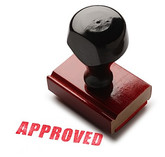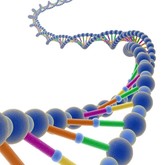Biosimilars
Extension of indications and manufacturing approval for biologicals in the US
Filgrastim biosimilar Granix (tbo-filgrastim) has been approved for extended indications and Samsung BioLogics has received approval to manufacture a monoclonal antibody drug product.
Comparison of biosimilar and originator bevacizumab in NSCLC
A study carried out by international researchers reported results from a comparative clinical study of PF‑06439535, a candidate bevacizumab biosimilar compared to originator bevacizumab, in patients with advanced non-squamous non-small cell lung cancer (NSCLC) [1].
FDA guidance sought on false and misleading information on biosimilars
Pharma giant Pfizer has asked the US Food and Drug Administration (FDA) to issue guidance ‘clarifying appropriate sponsor communications about the nature and properties of biosimilars’.
Trastuzumab and Bevacizumab products approved in Australia and Argentina
Australia has approved a trastuzumab biosimilar and Argentina has approved a bevacizumab medicamento biológico similar.
Pooled analysis results of adalimumab, etanercept and infliximab biosimilars
South Korean electronics giant Samsung and biotechnology company Biogen Idec (Biogen) joint venture Samsung Bioepis, along with Biogen, announced on 13 June 2018 results of a pooled analysis combining data from three phase III trials that compared the efficacy and safety of anti-tumour necrosis factor (anti-TNF) biosimilars to their reference biologicals.
Comparison of trial and real-world data for biosimilar filgrastim
A study carried out by researchers from Germany compared results from a randomized controlled trial (RCT) of Sandoz’s biosimilar filgrastim and post-approval data on the safety of the biosimilar [1].
EMA approves adalimumab and pegfilgrastim biosimilars
The European Medicines Agency’s (EMA) Committee for Medicinal Products for Human Use (CHMP) announced on 27 July 2018 that it had recommended granting marketing authorization for the adalimumab biosimilar Hulio and also for the pegfilgrastim biosimilars Pelgraz and Udenyca.
Alternative mAb purification strategies: a tool to increase global access to biotherapeutics?
The monoclonal antibodies’ (mAbs) market is dominant among therapeutic biologicals. Between 2013 and 2017, it has witnessed the approval of 11 biosimilars and 33 new molecules by the regulatory authorities in the EU and the US [1]. A foreseen increase in demand arising from both the western world and several developing countries requires a productivity increase at the same time that the biopharmaceutical industry is being pressured to reduce the costs of life-saving drugs.
Positive switching data for infliximab and etanercept biosimilars
Sandoz, the generics division of Novartis, announced on 15 June 2018 results of new phase III, long-term and switching data for its infliximab biosimilar Zessly (PF‑06438179) and its etanercept biosimilar Erelzi in rheumatoid arthritis patients.
FDA approves filgrastim biosimilar Nivestym
On 20 July 2018, the US Food and Drug Administration (FDA) approved its second filgrastim biosimilar. The filgrastim biosimilar, Nivestym (filgrastim-aafi), is produced by US pharma giant Pfizer.











